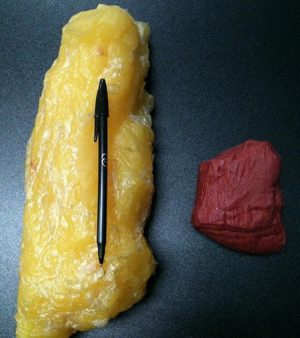Does Conjugated Linoleic Acid work? Is CLA supplementation worth considering?
Some studies have helped answer the question, does CLA work? Its effects have been measured by looking at either fat loss or weight loss. Fat loss is likely the most helpful measurement to answer does CLA work? Like many supplyements and drugs CLA has been studied in both rodents and humans. Rodent studies have shown that CLA consumption can cause apoptosis (cell death) in this case the death of fat cells within 5 days of its consumption. One study found that while body weight didn’t decrease in rodents the amount of fat did decrease. In 2007 a large meta analysis (a study of putting many studies together, 18 in this case to be exact) was conducted. This meta analysis looked specifically at the best studies available on the supplement. They only included human studies that were randomized, double-blinded, and placebo controlled. On top of using the truly gold standard (randomized, double-blinded, placebo controlled) methods for research they also used validated tools for testing body composition. The average dose of CLA was 3.2g per day. Some studies have looked at higher doses but they did not find any greater effect. They found that on average those taking CLA lost 0.024kg (0.05lbs) more fat than those taking placebo per week. The supplement usually continued to help the most over 6 months and then had plateaued by two years. Although the math likely isn’t that simple given changing weight and metabolism this may account for around 6 lbs of fat loss over a 2 year period. Rather mild it may seem unless you think of what 6 lbs of fat actually looks at, check out the picture. The picture of the yellow substance (fat) shows 5 pounds of fat compared to 5 lbs of muscle. So you can see losing 5lbs of fat isn’t a trivial accomplishment. Of course CLA isn’t the end all be all of fat loss . Diet and exercise are the mainstay of fat reduction. I am reluctant to say this but the fat loss was observed even without diet and exercise particularly in those who were healthy but overweight. Overall, CLA may help you if you are looking to change your body composition by losing fat. It is important to note that many of the studies do not show weight loss from CLA but rather a change in the percentage of fat and muscle in the body so don’t expect to see changes on the scale. Below is a link to a CLA product from a company called BulkSupplements which has show time and time again by third party testers to be accurately labeled and pure.
Sources for does CLA work:
Conjugated Linoleic Acid (CLA), Body Fat, and Apoptosis
Efficacy of conjugated linoleic acid for reducing fat mass: a meta-analysis in humans
Conjugated linoleic acid supplementation for 1 y reduces body fat mass in healthy overweight humans
Conjugated Linoleic Acid Reduces Body Fat Mass in Overweight and Obese Humans
Conjugated Linoleic Acid Reduces Body Fat in Healthy Exercising Humans





